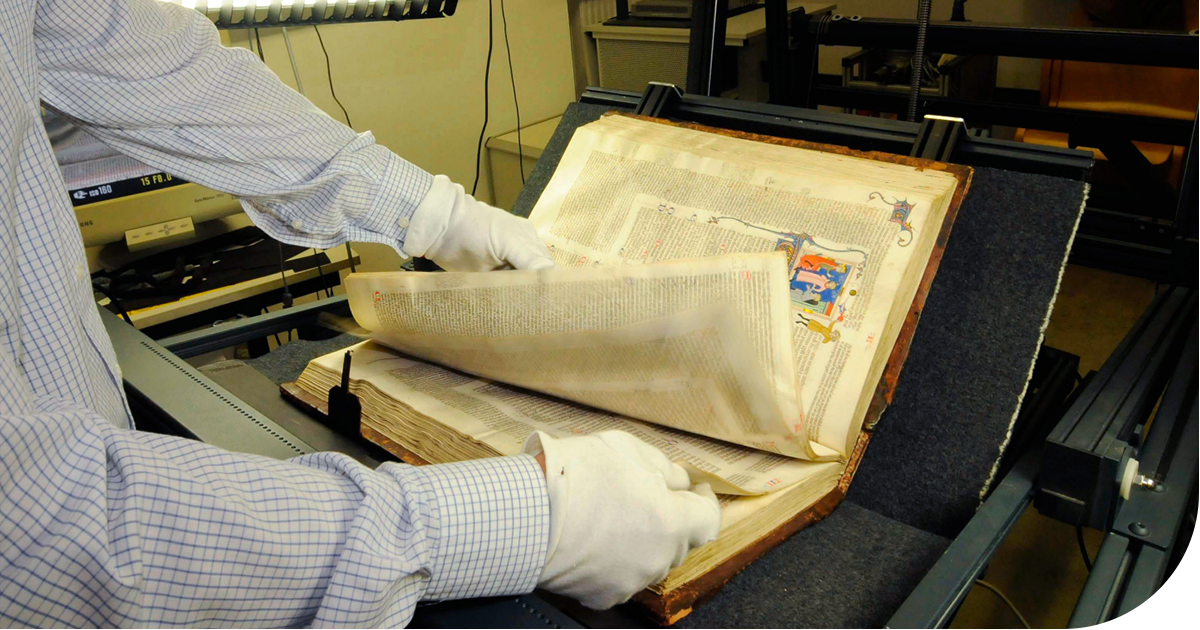Digitization of materials provides users with unprecedented access to historic documents, records and rare books. Of course, no institution can afford to digitize its entire collection. What criteria should you use to decide which materials warrant digitization? Following is an excerpt from NEDCC's Preservation Leaflet 6.6: "Preservation and Selection for Digitization," which offers a framework to evaluate your collections.
Content Value
- How do the materials relate to the institution's collecting policy and to its other digital resources?
- Are they rare or unique?
- Do they provide accurate information in their subject area or contribute to broader or deeper coverage? Do they relate to areas poorly documented online?
- Is there a legal need to preserve the materials and make them widely accessible?
- Are they important for the functioning of the institution?
- Do they support current or new high-priority activities?
- Will they display well on-screen?
User Demand
- Is there an active, current audience for the materials?
- Is current access to the original materials inadequate?
- If current demand is low, will digitization attract enough new viewers to justify the cost
Value Added
- Search capability
- Digitization can add value by combining related materials from several institutions into one Virtual collection
- Digitization can facilitate exposure of materials ordinarily kept under strict access
- Digitization may enable improvements in legibility or audibility through technical manipulation
Preservation photocopying and digital reproduction are both great options for preserving information that is printed on acidic paper or documents that are handled frequently. If you choose to copy, make sure to use a permanent, durable paper such as Permalife bond and a carbon pigment-based toner that won't fade over time. The copier itself should produce enough heat and pressure to permanently bond the toner with the paper. Digital reproduction can provide you with both a facsimile on permanent, durable paper and a digital file.
NOTE: Rare and valuable books may not be good candidates for copying because they can be damaged in the process. If you are interested in having a copy, you should contact a book conservator or a company that provides preservation facsimiles.
While digitizing collections, it is vital to remember to back up your computer files. How many times have you heard this? It seems simple, but a lapse can cost you time and money. Save valuable files, including digital photographs on CD, DVD or Blu-Ray discs, and make at least two copies. Store the copies in different locations (such as home and office) to decrease the chance they'll both be lost in the same disaster.
FOR MORE INFORMATION:
- Preservation Guidelines for Digitizing Library Materials © Library of Congress
- Digital Preservation Portal © Library of Congress
- Why Digitize? © Council on Library and Information Resources (CLIR)

